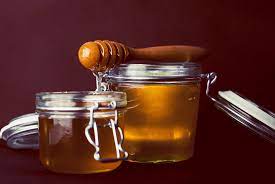A new study conducted by reseachers at the University of Toronto, Canada, has confirmed that replacing sugar with honey, particularly the raw one, had a positive effect, especially in bringing blood sugar and cholesterol levels down.
The study found that when people are on a healthy diet in which no more than 10 percent of daily calories come from sugar, honey actually provides cardiometabolic protective benefits, including improving glucose response, reducing insulin resistance and promoting the growth of bacteria associated with a healthy gut.
The 2023 study, a review and meta-analysis of the effects of honey in 18 controlled feeding trials involving 1,105 predominantly healthy individuals appeared in the journal, Nutrition Reviews.
Taken together, the trials showed that honey lowered fasting blood glucose (blood sugar levels on an empty stomach), total and ‘bad’ (LDL) cholesterol, as well as a marker of fatty liver disease. They also found that honey increased markers of inflammation.
According to the study, intake of honey at a median dose of 40g, which equates to roughly two tablespoons over a period of 8 weeks, resulted in beneficial reductions in fasting glucose, total cholesterol, fasting triglycerides and a significant increase in good cholesterol (HDL-C) levels.
There were significant differences by honey floral source and raw honey for the effect on cholesterol and blood sugar. Honey, especially robinia, clover and unprocessed raw honey, improve blood sugar control and cholesterol levels better when consumed within a healthy dietary pattern.
Raw honey also contains probiotic bacteria, including lactobacilli which are reduced when the honey is processed. Basically, conventional processing of honey involves several steps: straining and filtering for suspended and fine particles at 40°C; heating at 60°C to 65°C for a short period to reduce moisture and yeast, which is responsible for the fermentation and then rapidly cooling to maintain flavour, colour and enzyme content.
Although sugars of all kinds are associated with cardiometabolic issues and honey is 80 percent sugar, the study’s authors suggest that honey may be in a category of its own, since it comes exclusively from common sugars such as fructose and glucose, and so worthy of special consideration as a healthy food unlike most sweeteners.
Likewise, another review of 34 original articles addressing brain health from the consumption of honey also suggested its four main brain health benefits, which are cognition, emotion, psychology and behaviours memory booster.


